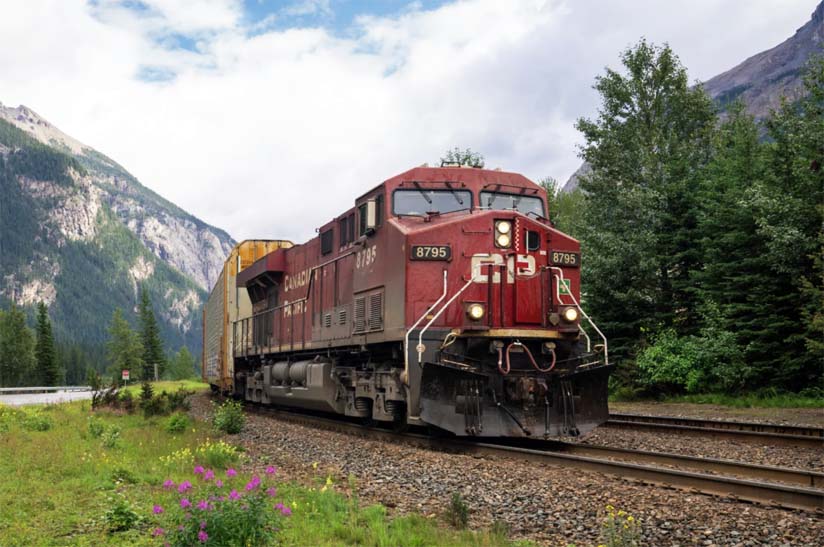
Calgary Alberta - As federal regulators consider whether to approve the proposed merger of Canadian Pacific and Kansas City Southern, CP
expects to work with other stakeholders on some aspects of the merger, but don't expect that to include unreasonable requests from other Class I railroads, CP
President and CEO Keith Creel said during CP's fourth-quarter 2021 earnings call late Thursday.
"When it comes to significant concessions, the facts don't support it, specifically divestiture," said Creel, referring to rival CN's request asking
regulators to consider recommending that CP and KCS divest a stretch of KCS track between Kansas City, Missouri, and Springfield and East St. Louis,
Illinois.
That stretch is "going to be a viable part of our network."
Furthermore, BNSF's request for trackage rights in certain locations is a way of trying to rework pre-existing agreements involving KCS and others, according
to Creel.
"The requests that have been made so far are not a surprise, obviously. We expected everybody to come to the table asking for certain things. But at the
same time, as we said from the very beginning, we're going to negotiate on reasonable terms and reasonableness is a two-way conversation, obviously,"
Creel said, adding that any concessions would need to support competition.
The proposed merger also has the benefit of precedence because the merger will be examined under older rules regarding rail Mergers and Acquisitions (M&A)
as all the stakeholders work through the merger proceeding, according to Creel.
"There's a catalog of different deals that have been done in concessions and agreements that have been made, that have been filed," with the Surface
Transportation Board, "so we have the precedence and the benefit of those that have navigated these waters before us," Creel said.
In addition to discussing the proposed merger, CP executives laid out what they expect to see in 2022.
Like all the other Class I railroads that have reported fourth-quarter earnings, CP anticipates volumes to be stronger in the second half of the year, partly
due to a "more normal" grain harvest than the the lower harvest levels that have been seen so far in the 2021-2022 crop year that runs from August to
July.
The chip shortage could also abate in the second half of the year, which would benefit automotive volumes.
International intermodal could be another segment that is "a second-half story" as CP works through volumes waiting at western Canada
ports.
"In the international side of the business, we've got a lot of pent-up import demand out there, not only in Vancouver but on the water. But I do think
it's going to take a little bit of time to grind through that," said CP Chief Marketing Officer John Brooks, who pointed out that domestic intermodal
should be strong through the year.
However, CP declined to provide earnings guidance for the year, citing numerous unknowns.
"For example, on the KCS front, we do not have control of their operations, and did not create their 2022 plan, so we'll not be providing guidance as to
their expected performance and its impact on our earnings," CP CFO Nadeem Velani said.
"With the timing and conclusion of the regulatory process in the hands of the STB, as well as with omicron and other macro factors presenting some
near-term uncertainty, we felt it was prudent not to provide formal guidance. We are committed to providing as much transparency as we are able to, and I'll
provide key modeling data points in my remarks where appropriate."
Joanna Marsh.
 CP's 4th quarter 2021 financial results removed as they appeared yesterday.
CP's 4th quarter 2021 financial results removed as they appeared yesterday.
(there was no image with original article)
(usually because it's been seen before)
provisions in Section 29 of the Canadian
Copyright Modernization Act.
